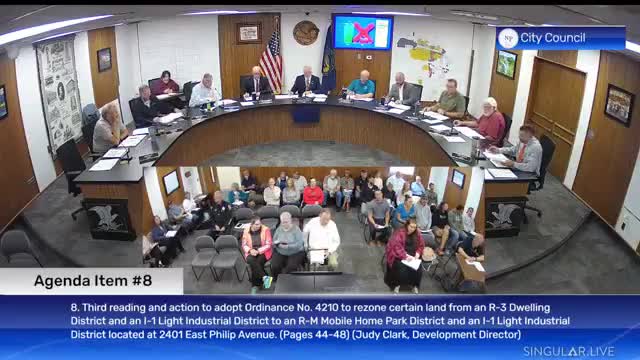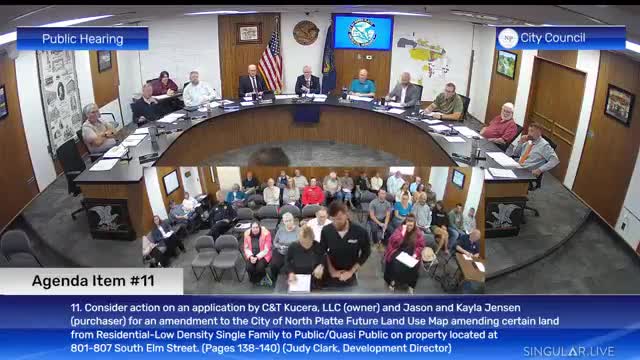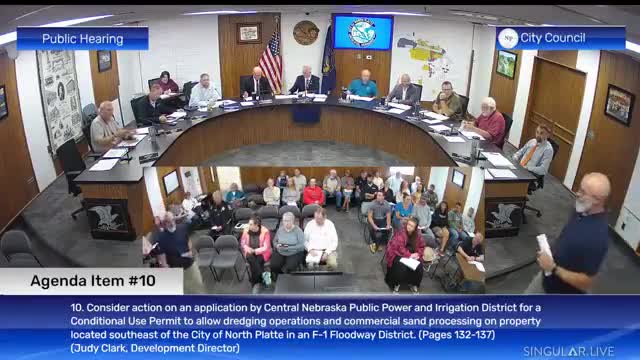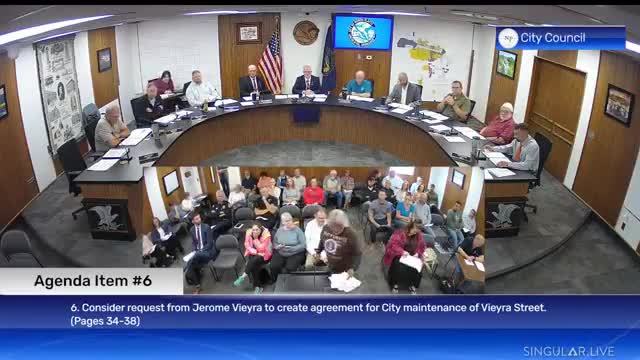Article not found
This article is no longer available. But don't worry—we've gathered other articles that discuss the same topic.

North Platte council approves routine purchases, interlocal fuel agreement, property sales and other items

North Platte council rejects rezoning of 801–807 South Elm for Enzo Athletic Performance after neighborhood opposition

North Platte council grants conditional use permit for sand dredging and commercial processing at Diversion Dam site

